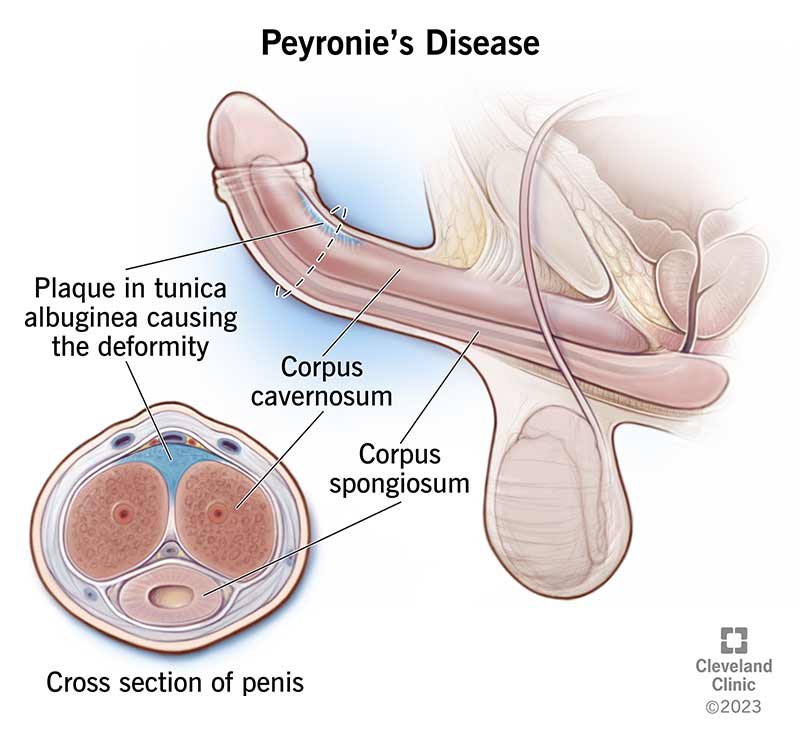
Getting frequent erections is not inherently bad for your health. It’s a sign of good blood flow and erectile function.
Erections are a natural and essential aspect of male sexual health. They occur due to the complex interplay of psychological, neurological, hormonal, and vascular factors. Regular erections are often seen as a sign of a healthy erectile system. In the context of a man’s sexual health, the frequency of erections can vary widely and is influenced by numerous factors including age, overall health, and sexual activity levels.
It’s important to understand that while excessive or painful erections can indicate underlying health issues, such as priapism, having multiple erections throughout the day is typically not a cause for concern. This natural phenomenon indicates that the blood vessels and nerves responsible for erectile function are active and healthy. Maintaining open communication with a healthcare provider is key if any concerns about sexual health or erectile function arise.

The Basics Of Erections
Understanding erections is key to men’s health. An erection is not just a sign of sexual arousal. It is a complex process involving the brain, hormones, emotions, nerves, muscles, and blood vessels. It can happen during sleep or upon waking, indicating a healthy blood flow and normal physiological functioning. Knowing when too much might be harmful is important for maintaining sexual health.
Physiology Behind Erections
Erections start in the brain. Sexual thoughts or direct contact with the penis triggers the brain. The brain then sends signals to nerves around the penis. Blood flow increases to two erection chambers in the penis. These chambers are made of spongy muscle tissue. The spongy tissue relaxes and traps blood. The pressure in the chambers makes the penis firm, leading to an erection.
Frequency Of Erections In Men
Men can experience several erections a day. They are not always due to sexual thoughts or activities. Spontaneous erections occur, especially in younger men. This is a sign of a healthy reproductive system. As men age, the frequency might decrease. Regular erections promote healthy penile tissue. They ensure oxygen-rich blood circulates well. This helps maintain erectile function.
Common Myths of “Is Getting Erections Too Much Bad for Erections”
Many people worry about frequent erections. They wonder if it is a bad sign. Let’s bust some common myths.
Erections As A Sign Of Hypersexuality
Some think that always being ready means hypersexuality. This is not true. Erections can happen many times a day. This can be normal, even if not sexually excited. It’s the body’s way of checking the system. Healthy men can have several erections in their sleep too.
Link Between Erections And Health Issues
Others believe frequent erections mean health problems. Not all the time. Good blood flow makes erections happen. This shows your vessels are healthy. But if you have pain or it lasts too long, see a doctor. That can be a sign of a problem.
Understanding The Normal Range
Today, we’re diving into Understanding the Normal Range of erections. It’s key to know what’s typical for healthy sexual function. Let’s clear up some common questions and concerns.
What’s Considered Normal?
Erections vary from person to person. Normal means different things for everyone. Yet, having 3 to 5 erections during sleep is common. During the day, erections can happen without sexual thoughts. This is also normal. It’s your body’s way of keeping healthy.
Variations With Age
Age changes how often erections happen. Let’s look at this more closely.
- Younger males might notice more spontaneous erections.
- As men age, the frequency of erections might decrease.
This change is a natural part of aging. It doesn’t always mean there’s a problem.
Understanding your body is important. If erections change suddenly, talking to a doctor can help. They can tell if these changes are part of normal aging or if they need more attention.
Credit: www.yalemedicine.org
When Erections Signal A Problem
Most times, erections are normal and healthy. Yet, some signs hint at issues. Let’s explore when erections might signal a problem.
Identifying Erectile Dysfunction
Erectile dysfunction (ED) means trouble getting or keeping an erection. It’s common but not always serious. Signs of ED include:
- Rarely having erections in the morning.
- Struggling to maintain erections during sex.
- Stress or worry about erections.
Many things can cause ED. These include stress, health problems, and age. A doctor can help find the cause.
Priapism: A Potential Emergency
Priapism is an erection lasting more than four hours. It’s not due to sexual excitement. Priapism can hurt and is a medical emergency. Signs include:
- An erection that lasts too long.
- Pain in your penis.
- Erection feels hard and painful.
Priapism can damage the penis. Seeing a doctor fast is crucial.
Understanding these issues can help keep your sexual health in check. Talk to a doctor if you notice any signs.
The Impact Of Lifestyle On Erection Frequency
The Impact of Lifestyle on Erection Frequency is significant. A man’s lifestyle choices can lead to more or fewer erections. This includes what they eat, how much they exercise, their stress levels, and sleep quality. Understanding how these factors interact with erection frequency is key to maintaining sexual health.
Diet And Exercise
A healthy diet and regular exercise can improve erection frequency.
- Fruits and vegetables boost blood flow.
- Whole grains and lean proteins support energy levels.
- Regular cardio keeps the heart healthy.
- Strength training boosts testosterone levels.
Balance is key. Too much fat and sugar can harm blood flow. This may lower erection frequency.
Stress And Sleep Patterns
Stress and sleep have direct effects on erections.
| Stress Level | Sleep Quality |
|---|---|
| High stress can reduce sexual function. | Poor sleep may decrease testosterone. |
| Relaxation techniques can help manage stress. | 7-9 hours of sleep supports hormone balance. |
Creating a calm environment and sticking to a sleep schedule can improve erections.
Credit: my.clevelandclinic.org
Psychological Factors At Play
Understanding our minds is key in sexual health. Erections can be affected by our psychological state. Let’s explore the mental aspects that influence sexual function.
Mental Health And Sexual Function
Mental wellness is crucial for a healthy sex life. Issues like depression or stress can disrupt normal erectile function.
- Confidence: A strong mind fosters better performance.
- Emotions: They play a big role in arousal.
- Chemical Balance: It’s vital for proper sexual response.
The Role Of Anxiety And Excitement
Anxiety often leads to performance issues. On the other hand, excitement can enhance the experience.
| Anxiety Effects | Excitement Effects |
|---|---|
| May cause erectile problems | Boosts arousal |
| Can lead to early ejaculation | Increases pleasure |
| Creates stress | Improves sexual function |
Debunking Myths With Medical Facts
Welcome to our exploration of common myths surrounding male sexual health.
Today, we focus on the frequency of erections and their impact on men’s well-being.
Expert Opinions
Many believe frequent erections signal a health issue. Experts disagree.
Urologists confirm: regular erections are a sign of good health.
Erections promote oxygenated blood flow, keeping penile tissues healthy.
Research-based Evidence
Scientific studies offer insights into this topic.
- Study findings: No link between frequent erections and harm.
- Erections during sleep are normal and indicate healthy erectile function.
Research shows that the absence of erections may need medical attention.
In summary, erections are natural and beneficial for penile health.
Addressing Concerns And Seeking Help
Addressing Concerns and Seeking Help is crucial for anyone experiencing frequent erections. It’s natural to question if too many erections could harm your sexual health. It’s essential to understand what’s normal and when to seek medical advice. Finding the balance is key, and knowing when to consult a doctor can prevent future complications.
When To See A Doctor
Seeking a doctor’s advice is important under certain conditions:
- Erections last longer than four hours.
- Pain accompanies an erection.
- Erection frequency suddenly increases without reason.
- Difficulty in conducting daily activities due to erections.
These symptoms can indicate underlying issues requiring professional assessment.
Treatment Options For Underlying Conditions
Effective treatments are available for erection-related concerns. They tackle underlying causes:
| Condition | Treatment |
|---|---|
| Hormonal Imbalance | Medication or hormone therapy |
| Psychological Factors | Counseling or therapy |
| Medication Side Effects | Dose adjustment or alternative drugs |
| Cardiovascular Issues | Lifestyle changes, medication |
Doctors may recommend lifestyle changes, therapy, or medication depending on the diagnosis.
Fostering A Healthy Sexual Life
Fostering a healthy sexual life is vital for overall well-being. Erections are a natural part of male sexuality. Concerns about having too many erections can lead to anxiety. Understanding what’s normal is key. Let’s explore how open communication and realistic expectations contribute to a healthy sex life.
Communication With Partners
Talking with your partner helps. Share feelings and desires openly. It builds trust and understanding. This can ease worries about sexual performance. Discussing frequency of erections is important too. It ensures both partners are comfortable and informed.
Setting Realistic Expectations
Media often shows unrealistic sexual standards. Know that each person’s sexual response is unique. Not everyone has frequent erections. It’s okay. Recognize that what’s shown in movies isn’t always real. Accept your body’s natural rhythm.
Balance is the key in a healthy sex life. Talk and listen to your partner. Understand that perfection isn’t the goal. Mutual comfort and pleasure are.

Credit: www.medicalnewstoday.com
Frequently Asked Questions
Can Frequent Erections Cause Health Problems?
Frequent erections are generally not harmful and signify good blood flow and sexual health. However, if they’re persistent and painful, it could indicate priapism, a condition requiring medical attention.
What Is The Normal Frequency For Erections?
The normal frequency varies with age and individual health. On average, younger males may experience nocturnal erections about three to five times per night, which is considered normal.
Do Daily Erections Indicate Good Health?
Yes, daily erections are typically a sign of good health and proper erectile function. They indicate that blood vessels and nerves are working effectively.
How Can One Maintain Healthy Erection Function?
Maintaining a healthy lifestyle, including regular exercise, a balanced diet, and avoiding excessive alcohol and smoking, can contribute to healthy erections. Reducing stress also plays a crucial role.
Conclusion
Navigating the balance between normal and excessive erections can be challenging. It’s essential to pay attention to your body’s signals. Frequent erections aren’t inherently harmful, but if you’re experiencing discomfort or it affects your daily life, consulting a healthcare professional is wise.
Remember, understanding and maintaining your sexual health is key to a happy, healthy life.




